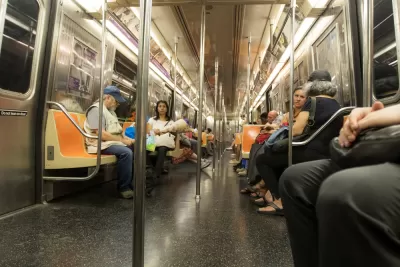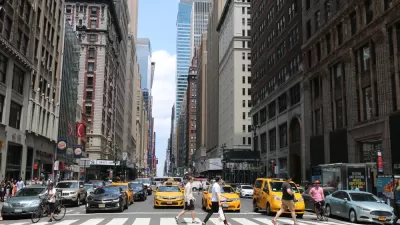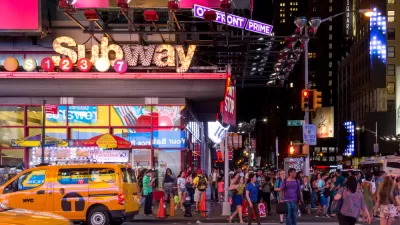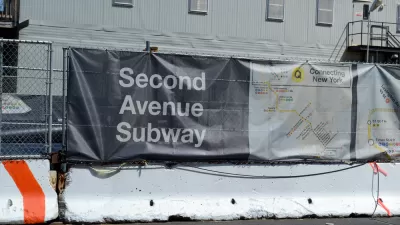Mayor Bill de Blasio is looking for new ways to fund transit improvements and access.

"Mayor Bill de Blasio plans to push for a tax on wealthy New Yorkers to pay for improvements needed to address the crisis engulfing New York City’s subway," reports Emma G. Fitzsimmons.
"Mr. de Blasio will announce a so-called millionaires tax on Monday for wealthy New York City residents to pay for subway and bus upgrades and for reduced fares for more riders, an idea that has been successful in Seattle," adds Fitzsimmons. The new funding would allow low-income riders reduced fares while riding the system. The proposal is modeled on the example of Seattle, which has a similar program that has proven popular, according to the article.
Fitzsimmons describes the move as a salvo in the ongoing political battle between Mayor de Blasio and Governor Andrew Cuomo over the state of transit in and around New York City. Governor Cuomo declared the New York subway system in a "state of emergency" in June, and the Metropolitan Transportation Authority is offering three prizes of $1 million each to the best crowdsourced ideas for fixing the subway.
FULL STORY: Bill de Blasio Will Push for Tax on Wealthy to Fix Subway

Study: Maui’s Plan to Convert Vacation Rentals to Long-Term Housing Could Cause Nearly $1 Billion Economic Loss
The plan would reduce visitor accommodation by 25,% resulting in 1,900 jobs lost.

Alabama: Trump Terminates Settlements for Black Communities Harmed By Raw Sewage
Trump deemed the landmark civil rights agreement “illegal DEI and environmental justice policy.”

Why Should We Subsidize Public Transportation?
Many public transit agencies face financial stress due to rising costs, declining fare revenue, and declining subsidies. Transit advocates must provide a strong business case for increasing public transit funding.

Paris Bike Boom Leads to Steep Drop in Air Pollution
The French city’s air quality has improved dramatically in the past 20 years, coinciding with a growth in cycling.

Why Housing Costs More to Build in California Than in Texas
Hard costs like labor and materials combined with ‘soft’ costs such as permitting make building in the San Francisco Bay Area almost three times as costly as in Texas cities.

San Diego County Sees a Rise in Urban Coyotes
San Diego County experiences a rise in urban coyotes, as sightings become prevalent throughout its urban neighbourhoods and surrounding areas.
Urban Design for Planners 1: Software Tools
This six-course series explores essential urban design concepts using open source software and equips planners with the tools they need to participate fully in the urban design process.
Planning for Universal Design
Learn the tools for implementing Universal Design in planning regulations.
Smith Gee Studio
Alamo Area Metropolitan Planning Organization
City of Santa Clarita
Institute for Housing and Urban Development Studies (IHS)
City of Grandview
Harvard GSD Executive Education
Toledo-Lucas County Plan Commissions
Salt Lake City
NYU Wagner Graduate School of Public Service





























